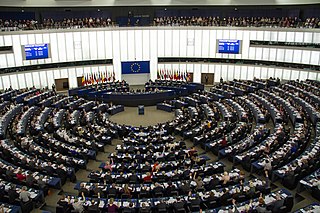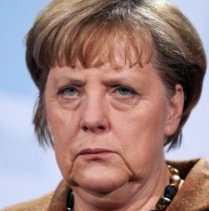How will the EU Parliamentary elections this week affect the British people?
In one week’s time the polling stations will finally have closed across the EU
Montage © Facts4EU.Org 2024
After the EU elections it will take 6 months for bureaucrats and politicians to ‘stitch up a government’
Today Facts4EU.Org looks at the absurdity of the EU elections which start on Friday. The day after the 80th anniversary of the D-Day landings, the polling stations will start opening in some EU countries (on 07 June 2024). The next day more countries will vote. Then on Sunday 09 June the people in the final countries will vote. When all the EU’s electorates have been to the polling booths, then the bickering and horse-trading can really begin in earnest.
There will follow months of secret backroom deal-making before the key positions in the various parts of what passes for government in the Brussels-based EU might be complete. We anticipate knowing who will be who in early December, long after some of the EU’s 450 citizens have forgotten who they even voted for.
Brexit Facts4EU.Org Summary
Up for grabs from Monday next week and in the months thereafter
What do these elections mean?
- 720 MEP positions
- President of the EU Parliament (currently a Maltese lady you probably haven’t heard of)
- President of the EU Commission (currently Germany’s Ursula von der Leyen)
- The EU’s de facto Vice President and Foreign & Defence Secretary (currently Spain’s Josep Borrell)
- President of the EU Council (currently a diminutive Belgian almost no-one has heard of)
- Chairs of around 100 important committees
Only the MEPs will be elected by the people. The electorate’s votes will count for relatively little when all the top jobs are carved up behind closed doors over the following 5-6 months.
So what happens after the votes are counted?
There are many stages in this lengthy process but the first will be after the votes are counted, when the leaders of parties with elected MEPs decide who they will work with. Without coalition groupings there is simply stalemate. This is not as obvious as in previous years, as the Right (known as the “Far Right” in Brussels) is expected to perform well.
This matters more than British voters might think, because EU funds for political parties are only allocated to the largest groupings. And these groups are given longer to speak in debates.

As for the national party leaders with MEPs, oh there will be dozens and dozens of them. This arises from the proportional representation system that is used.
All these leaders have to decide the other parties with which they wish to align. While some of these decisions have already been made in principle, much depends on the votes cast from 07-09 June.
During the rest of the year…
The subsequent stages are complicated, as is typical for the EU, and we do not intend to describe them in detail in this summary report.
What matters most is the selection of EU Commission President, arguably the most powerful position in the EU. Once agreed by the EU Council, this person is then put forward to the EU Parliament for interrogation and a vote. Ursula von der Leyen would like another five-year term, but this is not a given. It certainly is not clear that she would survive a vote in the Parliament. (See below.)
Three examples of the chaos
After the last EU Parliament elections in 2019, the EU Council tore up the agreed procedure when at the last minute Angela Merkel, then German Chancellor, parachuted in the least popular minister in her cabinet, Ursula von der Leyen, who was then appointed EU Commission President.
The pre-agreed procedure for the elected representatives (MEPs) to decide on the Commission President were tossed out of the window. When she was presented to the EU Parliament for endorsement, she barely scraped in by eight votes.

If she loses the vote this time, ‘all bets are off’ and we enter uncharted territory. Even if she wins, she will then have to choose her fellow Commissioners (one for each EU member country) and each of these has to be interrogated by a parliamentary committee before being voted on by the entire assembly. Based on the formation of the last Commission, some will not pass and then it’s back to the EU Council.
Two important things to remember
Firstly, the EU has never been so divided. There are now six right-of-centre governments in the EU, with more to come. They frequently disagree with the other member countries’ governments over policy and procedure. For years the EU had Angela Merkel who could dominate and manipulate like a professional. Now the EU has the left-wing Olaf Scholz as German Chancellor, generally seen as weak at home, weak in Europe, and weak on the world stage.
Secondly, the only body in the EU that can propose legislation is the EU Commission – and none of the Commissioners will have been elected by popular mandate. The elected MEPs in Parliament have no right to put forward their own Bills. All they can do is vote on what the Commission puts forward. The Commission also decides on ‘Rules’, ‘Directives’, ‘Regulations’, and other legal mechanisms which directly affect the lives of EU citizens.
And finally, the ‘rule of law’
Finally, as if all of this were not enough there is the ‘Court of Justice of the European Union’ (CJEU), formerly known as the ECJ. This is one of most politicised courts in the world. It contains ‘judges’ from across the EU, many of whom have had no actual experience as judges in their own countries.
Over the years the CJEU has taken greater and greater powers on itself to ‘interpret’ (meaning change or extend) EU law. Whatever the eventual composition of the EU Parliament and EU Commission, these ‘judges’ will partially determine measures affecting national governments and the daily lives of around 450m EU citizens.
All of the above is what is known as ‘democracy’ in the EU.
Observations
In a week’s time once all the votes are counted, let the fun and games begin. The one thing we can predict with absolute certainty is that those who work in the ‘Brussels Bubble’ will obsess for months over all the rumours, and the twists and turns.
Meanwhile, ordinary people will face the challenges of everyday life knowing that they didn’t vote in the EU’s most powerful – and they can’t vote them out.
Thanks to Brexit the United Kingdom is well out of all of this…. Unless a possible future Labour government starts drawing us back in, in a gradual move back to full membership.
And finally, around four weeks after the EU Parliamentary elections the British people will vote, in the UK General Election on 04 July. It is highly likely that we will know who will be our Prime Minister the next day.
The Facts4EU.Org team are considering closing down after the election
The reason is simple: lack of money. We are a 'not for profit' team (we make a loss) and any payment goes towards the actual work, not plush London offices, lunch or taxi expenses, or other luxuries of some organisations.
We badly need more of our thousands of readers to become members, to support this work. Could this be you, today? It's quick and easy, we give you a choice of two highly secure payment providers, and we do NOT ask you for further support if you pay once. We just hope you keep supporting us. Your membership stays anonymous unless you tell us otherwise.
Please don't assume that other people will keep us going - we don't receive enough to survive and we need your help today. Could you help us? We rely 100% on public contributions from readers like you.
If you believe in a fully-free, independent, and sovereign United Kingdom, please join now by clicking on one of the links below or you can use our Support page here. You will receive a personal, friendly ‘thank you’ from a member of our team within 48 hours. Thank you.
[ Sources: EU Commission | EU Parliament ] Politicians and journalists can contact us for details, as ever.
Brexit Facts4EU.Org, Mon 03 Jun 2024
Click here to go to our news headlines
Please scroll down to COMMENT on the above article.
And don't forget actually to post your message after you have previewed it!
Since before the EU Referendum, Brexit Facts4EU.Org
has been the most prolific researcher and publisher of Brexit facts in the world.
Supported by MPs, MEPs, & other groups, our work has impact.
We think facts matter. Please donate today, so that we can continue to ensure a clean Brexit is finally delivered.
Paypal Users Only - Choose amount first
Quick One-off
Monthly



Something to say about this? Scroll down for reader comments